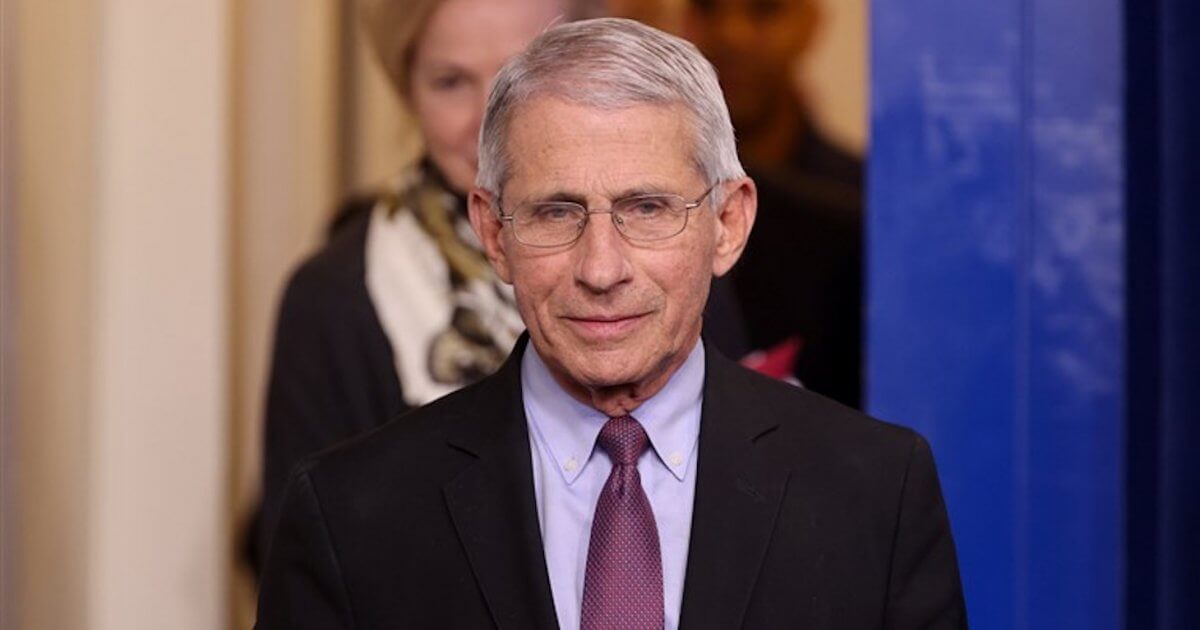At Cancer Screening Visits: 5 Tips To Stay Safe
- Book early morning appointments to avoid crowds
- Wear a mask and gloves to the appointment
- Wash hands upon entering and leaving hospital carry hand sanitizer, use it
- Remain six feet distance from other patients
- Ask hospital staff about safety and sanitizing practices
For cancer patients — and those yet to be diagnosed — the news may have long-term effects, Dr. Fauci noted, as cancer screenings, treatment, and research face disruptions.
Read MoreA Tough Opponent
The novel coronavirus is proving a much tougher opponent than the SARS virus Dr. Fauci says, because, while less deadly, it’s more easily spread, often through people without symptoms.
Fauci also noted the “extraordinary” variety in the way the coronavirus infects people: Roughly 20% to 45% have no symptoms. Among those identified with the viral infection, 81% have mild to moderate symptoms, 14% experience severe symptoms, 5% require critical care, and 2.4% die. As of Monday, the Johns Hopkins University coronavirus resource center estimated 3.8 million cases in the U.S. and more than 140,000 deaths.
As Screenings Return, More Cancer Diagnoses
A sudden return to cancer screening after weeks — or months — of delays has consequences, Dr. Otis Brawley, a medical oncologist and epidemiologist at John Hopkins University, told SurvivorNet in a previous interview.
“All of a sudden, you start doing that screening again, we're going to have … an increase in the number of breast cancers in the first couple of months after we start mammography screening again,” he notes.
Because of the pandemic, surgery and treatment decisions are changing, says Dr. Ramez Eskander, a gynecologic oncologist at UC San Diego School of Medicine. “I'm fairly comfortable that that's going to happen in colorectal cancer [as well],” he said. "
When we start opening the gates up and screening people again,” he notes, “we're actually going to screen a lot more people in that first couple of months than we normally do." Dr. Brawley explains. "People who would have been diagnosed during the period of no screening [will be] diagnosed when we start screening again.
Booking Screenings? “This Is No Time To Be Shy”
As cancer screenings resume, the influx of patients means you'll need to push. That's the message from the Chief Medical Officer of the American Cancer Society. After months of sheltering in place, major hospitals tell SurvivorNet cancer screenings have dropped by 90% or more. Now, as restrictions ease and call-lines open, SurvivorNet asked Dr. Len Lichtenfeld what people at higher risk must know about booking screening appointments.
First, this is no time to be shy. "Ask for priority scheduling," Dr. Lichtenfeld advises. "As we start to open up, it's a concern that those with risk factors get priority we need to make sure that people who may not have as loud a voice are protected," he says. While Dr. Lichtenfeld hopes that screening centers will prioritize people with cancer risk-factors, he cautions, "there's no rulebook right now."
Self-advocacy can be as simple as speaking up when you make your appointment.” If you have a BRCA gene mutation, for example, or a family history of cancer, let the person on the phone know: You need to be seen sooner, rather than later.
Dr. Heather Yeo explains why early detection is so important for colon cancer Ideally, screening centers will adjust their hours adding evening appointments, perhaps to accommodate the influx of patients. But, “access will be limited,” Dr. Lichtenfeld cautions. “Waiting rooms will be emptier. But it's important that we get the patients who really need to be there in the door."
Symptoms? Don’t Wait — Go Now.
It's also a good time to track your screening history, Dr. Lichtenfeld stresses. When was your last mammogram? Are you due for a colonoscopy? Is it time to see a dermatologist for full-body skin check? Check The American Cancer Society's full list guidelines to confirm you're on track.
For anyone who has noticed symptoms a breast lump, a suspicious mole, or unusual bleeding don't wait for a screening appointment, "Call and get it taken care of today," says Dr.Lichenfeld. "You don't wait four months until the pandemic has subsided to get it checked," he emphasizes.
“You go now,” he insists. “That's my top-of-mind concern, people who know something is wrong, but they're hesitating to contact a doctor to get it checked."
Learn more about SurvivorNet's rigorous medical review process.

